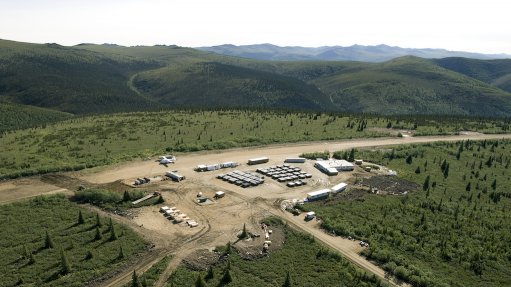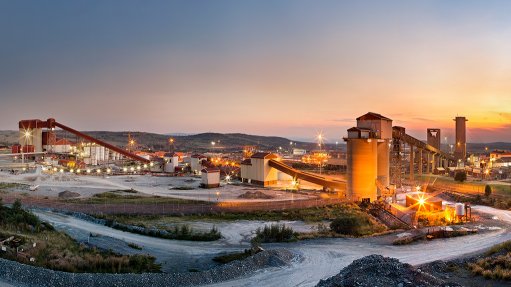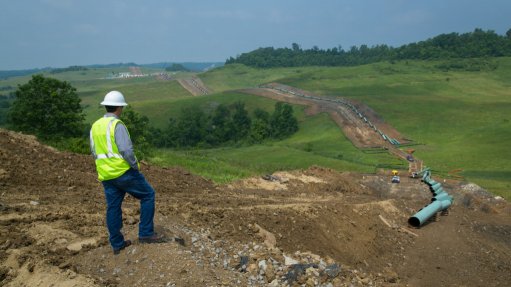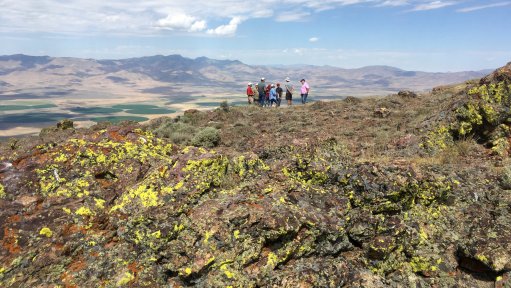West African mining industry rising despite challenges

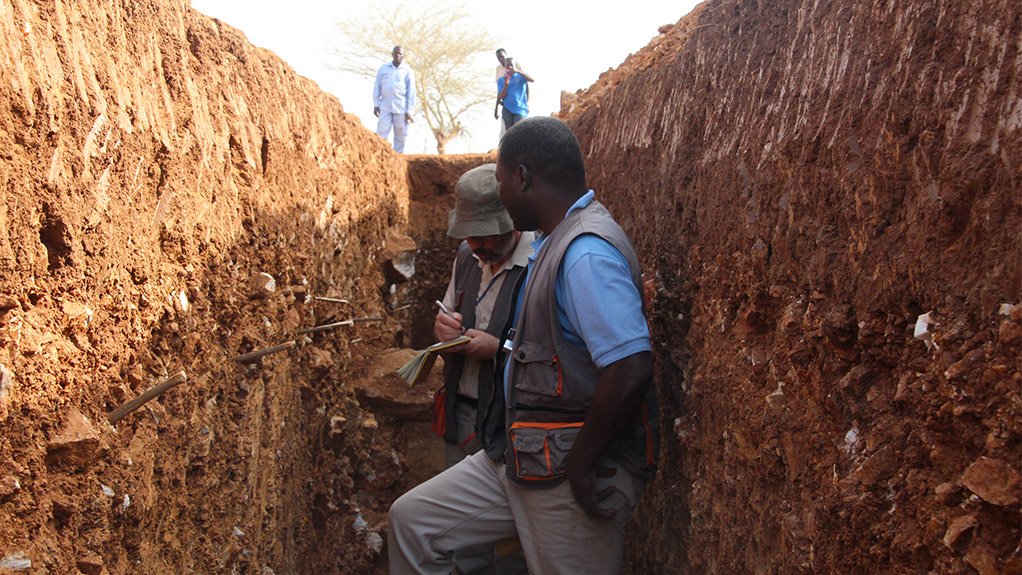
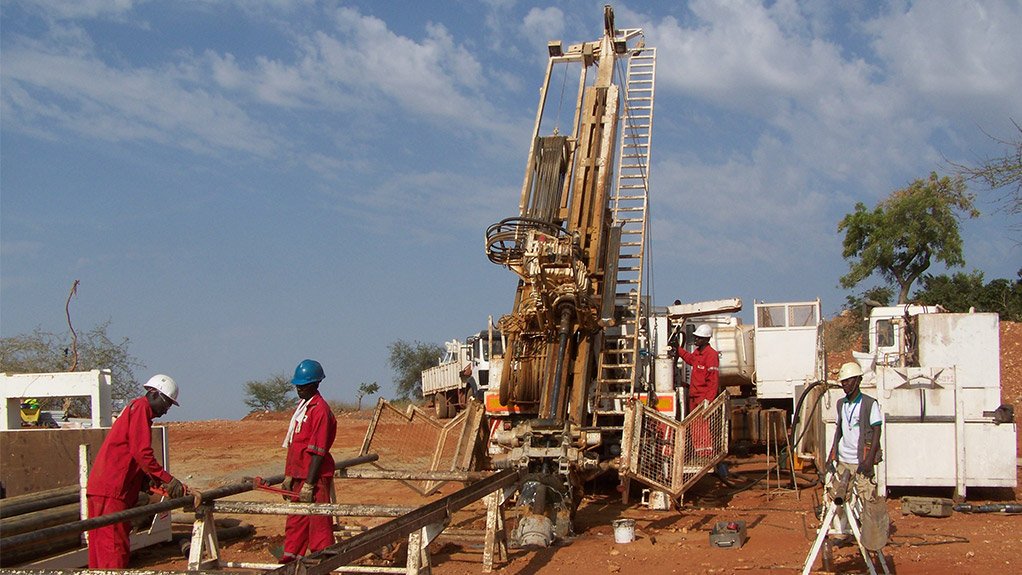
WEST AFRICA RISING West Africa’s diverse mineral resources, increasing political stability and relatively low entry costs are ideal conditions for mining investment
LOOKING FORWARD Trends for the future include better government-mine relationships and an increased use of technology
West Africa has the potential to attract greater investment and further develop its fledgling mining industry, says Centurion Law Group CEO NJ Ayuk.
“Almost every country in the region has mineral reserves that have barely been touched, in contrast with Southern Africa, where mining is a mature industry,” he tells Mining Weekly.
Further, Ayuk highlights the diversity of minerals that can be found across the region, as well as the diversity in industry- and mining-conducive environments.
West Africa is now the centre for gold, bauxite and iron-ore mining on the continent, with ongoing and upcoming projects across the region, while uranium has high potential. “Consider the business-friendly and conducive legal environments in Mauritania and Burkina Faso or the significant growth in gold mining in Côte d’Ivoire,” he enthuses.
“Mali, Guinea, Cameroon and Côte d’Ivoire are expected to see significant gains in their mining industries, and the growth is driven by their improving business environments and potential for huge untapped reserves,” Ayuk maintains. For example, Mali has numerous projects coming through in the next few years, such as the 2.3-km-long Soa prospect being explored by Altus Strategies at the Sebessounkoto Sud project, and Côte d’Ivoire has progressive mining regulations and infrastructure.
He suggests that using regional tools and institutions, such as the Organisation for the Harmonisation of Corporate Law in Africa (OHADA), to create “a level playing field” in terms of facilitating and encouraging investment is a crucial aspect of developing mining in West Africa.
OHADA aims to synchronise business laws and the implementation thereof across Western and Central Africa to attract foreign and domestic investment. Although based in Côte d’Ivoire, it can convene in any country of its 16 member States.
Challenges
“Governance and political instability are perennial challenges in West Africa,” Ayuk says, while environmental consultancy LLD Pty director Phillup Love alleges that illegal gold and mineral sales, as well as corruption, remain key issues. “In many cases, illegal miners are selling gold far below the market price – a sale that could have been taxed to the benefit of that specific country.”
Ayuk points out that certain issues, such as militant groups, can impact on investment. “Security and stability need to be carefully considered by investors.”
Despite these challenges, Ayuk and Love are positive about the future of mining in West Africa.
Consequently, many policymakers in the region, such as those in Nigeria, are now focusing on mining as an important revenue earner.
Drawcards
In addition, the entry costs for new mines into West Africa are relatively low, owing to mining creating low-technology jobs and the fact that the region already has some infrastructure in place due to oil mining in the region. Low-technology jobs allow for the hiring of people who have lower-range skills in surrounding communities, subsequently helping the communities.
“There is a drive to boost [mineral] mining in the region; therefore, the States are trying to make it cost effective [for mineral mines] to enter,” Ayuk says, adding that low entry costs also provide opportunities for local players as less capital is needed for exploring new mines. There are also fewer regulations in the region with regard to labour than, for example, in South Africa, access to ports and some of the most enabling mining fiscal terms, he elaborates.
In addition, increasing political stability is evident in many areas, while infrastructure is ready to be built. “Given the expectation that extraction costs of minerals in South Africa will rise significantly, West Africa is poised to take advantage,” Ayuk puts forward.
Love reiterates that more legislation is being implemented that better organises mining and harnesses the benefits of mines and, with more effective imple- mentation of legislation, anti-corruption drives and accountability movements, “West Africa is slowly but surely progressing in the right direction”.
Towards the Future
Social awareness, corporate social responsibility, local-content issues and transparency are all being taken more seriously in West Africa. Nigeria is pushing for greater transparency within its mining structures, companies and government, and, in Guinea, mining companies are required to provide for training of the local population and more generally Guinean nationals, protect the environment, and prepare the local community for the cessation of mining activities.
Many countries are also placing quotas on the amount of locals that need to be hired by international companies, and have instituted stringent local content regulations that ensure the promotion of national interests by requiring contractors and subcontractors to hire local companies for supplies and services.
“Public- and private-sector cooperation is a major theme,” Ayuk states and urges that governments and mining companies should aim to collaborate more often, especially with regard to mining projects that are in the national interest.
Further, drone technology is a relatively easy technology to implement. “Drones can revolutionise the search for minerals, reducing the risk to mineworkers in that they do not have to enter certain high-risk areas and boosting productivity,” he adds.
Other technologies that can increase safety at mining operations include micro-explosives and blasting technologies, paired with computer- designed and timed operations. Automated rigs can make operations safer and more efficient.
“Mining can uplift Africa to be an economic hub of the world,” Love concludes.
Comments
Press Office
Announcements
What's On
Subscribe to improve your user experience...
Option 1 (equivalent of R125 a month):
Receive a weekly copy of Creamer Media's Engineering News & Mining Weekly magazine
(print copy for those in South Africa and e-magazine for those outside of South Africa)
Receive daily email newsletters
Access to full search results
Access archive of magazine back copies
Access to Projects in Progress
Access to ONE Research Report of your choice in PDF format
Option 2 (equivalent of R375 a month):
All benefits from Option 1
PLUS
Access to Creamer Media's Research Channel Africa for ALL Research Reports, in PDF format, on various industrial and mining sectors
including Electricity; Water; Energy Transition; Hydrogen; Roads, Rail and Ports; Coal; Gold; Platinum; Battery Metals; etc.
Already a subscriber?
Forgotten your password?
Receive weekly copy of Creamer Media's Engineering News & Mining Weekly magazine (print copy for those in South Africa and e-magazine for those outside of South Africa)
➕
Recieve daily email newsletters
➕
Access to full search results
➕
Access archive of magazine back copies
➕
Access to Projects in Progress
➕
Access to ONE Research Report of your choice in PDF format
RESEARCH CHANNEL AFRICA
R4500 (equivalent of R375 a month)
SUBSCRIBEAll benefits from Option 1
➕
Access to Creamer Media's Research Channel Africa for ALL Research Reports on various industrial and mining sectors, in PDF format, including on:
Electricity
➕
Water
➕
Energy Transition
➕
Hydrogen
➕
Roads, Rail and Ports
➕
Coal
➕
Gold
➕
Platinum
➕
Battery Metals
➕
etc.
Receive all benefits from Option 1 or Option 2 delivered to numerous people at your company
➕
Multiple User names and Passwords for simultaneous log-ins
➕
Intranet integration access to all in your organisation








